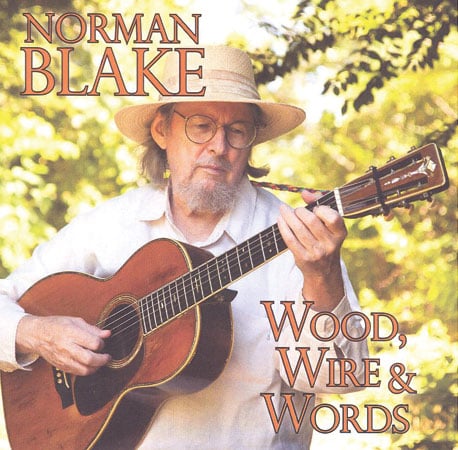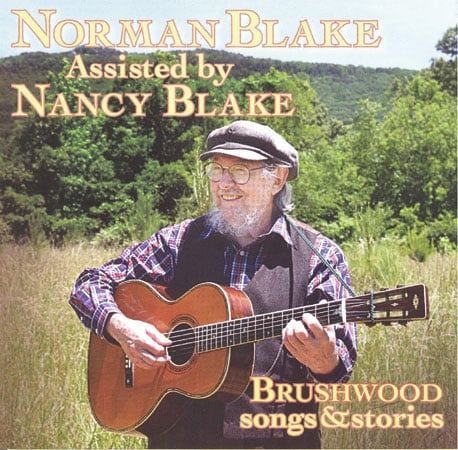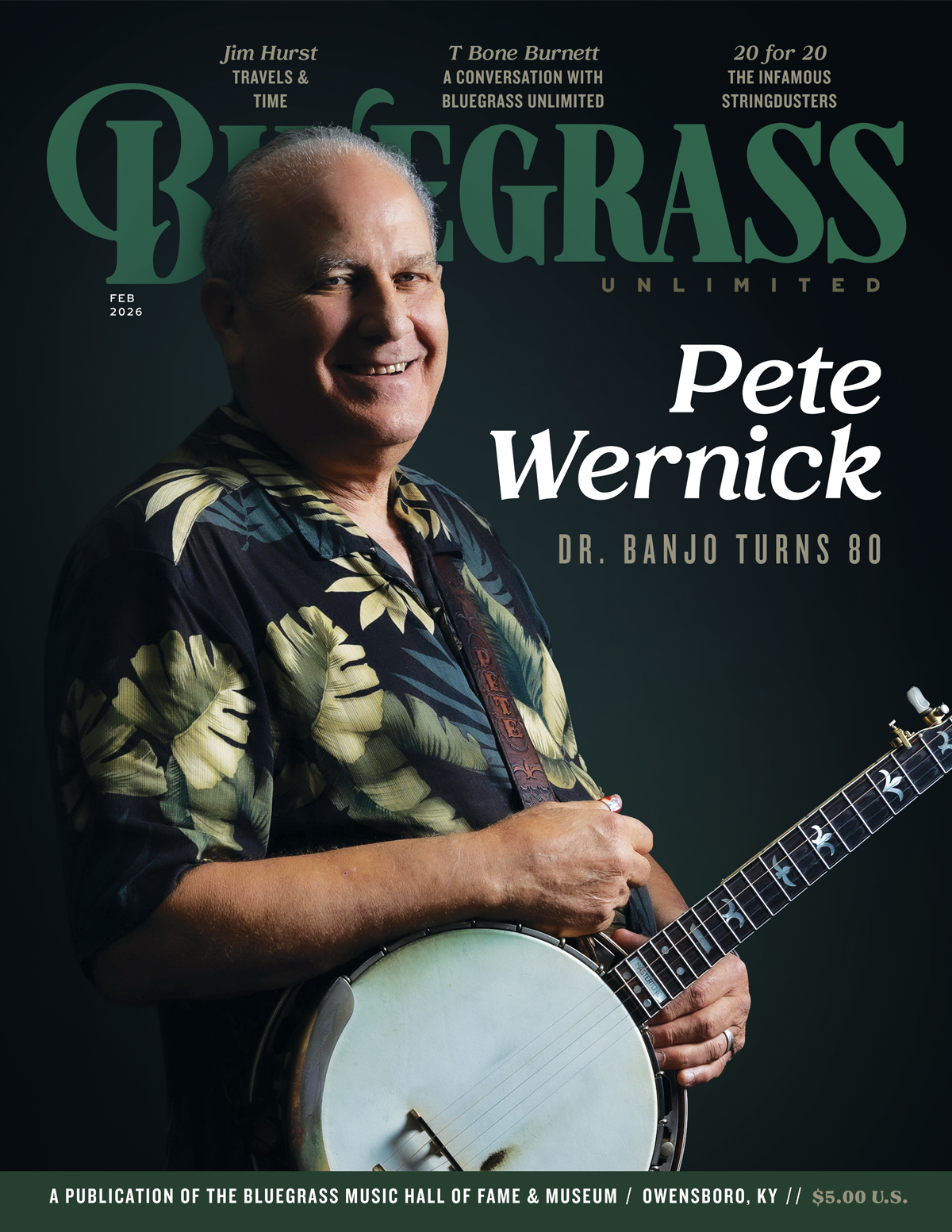NORMAN BLAKE – WOOD, WIRE & WORDS
 NORMAN BLAKE
NORMAN BLAKE
WOOD, WIRE & WORDS
Plectrafone Records 824761-144762
This album is truly an event. Norman Blake established himself in the late 1960s as a impeccably talented Nashville guitarist/mandolinist session player, recording or touring with performers as varied as June Carter, Kris Kristofferson, Bob Dylan, Joan Baez, and Hylo Brown. Blake further emerged in the 1970s as an impressive member of the bands Red, White and Bluegrass and John Hartford’s Dobrolic Plectral Society. He then established himself as a respected solo artist, an American original who constantly drew on traditional roots music. In addition to memorable collaborations with his wife Nancy Blake, Tony Rice, Rich O’Brien, and others, Blake was an important contributor to both the landmark Will the Circle Be Unbroken? album in 1972 and the award-winning O Brother Where Art Thou? soundtrack in 2000.
The title of Blake’s new CD is appropriate. The timing, timbres, and sounds he transmits through acoustic wood and wire strings are beautiful, and his songwriting is compelling. So it’s an overdue treat to have his first full album of original songs and tunes in more than three decades.
Each track is closely tied to a person, place, or occurrence. “The Keeper Of The Government Light On The River,” with its spoken introduction, reminds us that government lighthouses have been vital not only on rocky ocean coastlands and in bays, but also near shoals and sandbars on major rivers. Also written in the first person and faithful to history is “Black Bart,” a ballad of stage coach robber Charles Earl Bolton (or Bowes). Blake also sings of his own life. Born in 1938 in Chattanooga, Tenn., his family moved to Sulphur Springs, Ga., when he was a year old. The affectionate story song “Grady Forester’s Store And Cotton Gin” is a direct memory of the little emporium on the dusty Sulphur Springs Gap Road where young Norman would walk to pick up his family’s mail. He transports us to an era when cold drinks was two for a dime/ three cents would pay the fare on a letter anywhere/ and the railroads they always ran on time…
Blake’s dignified but happily infectious touch as a guitarist is on proud display from the opening track “Savannah Rag” and on “Blake’s Rag,” both showing his creative talent for this truly American instrumental style. (Listen to the endings of “Savannah” and “Cloverdale Plantation March.”) His writing is genuinely poetic, gaining all the more impact through its understated simplicity. “The New Dawning Day” is a splendid example of how his carefully crafted progressions and chord voicings enhance his lyrics, serving both as frames and platforms. Longtime fans will be delighted that Norman’s wife and collaborator Nancy is very much present here, having co-written “There’s A One Way Road To Glory,” to which she adds her authentic mountain harmonies. The Blakes remain undaunted in their advocacy of world peace and brotherhood.
If Blake’s voice doesn’t consistently retain the intonation of its youth, the years have given it an even greater authority and authenticity. These are not just enjoyable songs. They are living documents of an era that is all the more poignant in memory because it’s only slightly gone by. With his masterfully resonated guitar wood and strings, and impeccably chosen words, Norman Blake has beautifully extended the long road of old-time country artistry to merge with the musical highways of our modern times. (Plectrafone Records, P.O. Box 9187, Colorado Springs, CO 80932, www.plectrafone.com.)RDS

